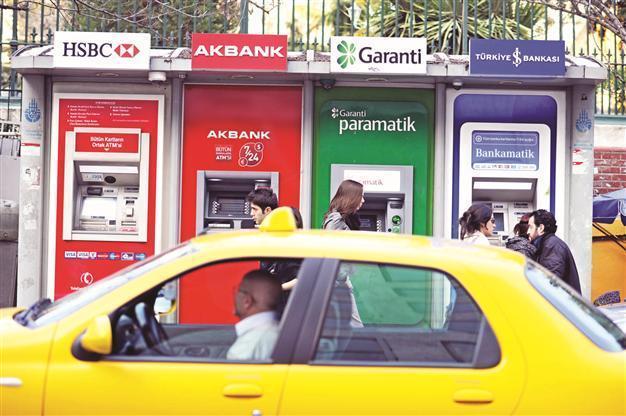Turkish banks set to comply with Basel II
ANKARA - Reuters

Akbank, Garanti and İşbank are among Turkey’s largest lenders, which will comply with the Basel II regulations. Turkey and the US were among the countries yet to comply. DAILY NEWS photo, Emrah GÜREL
The Turkish banking sector has the capacity to comply with soon-to-be-introduced Basel II regulations without any problems, the new chairman of Turkey’s Banking Regulation and Supervision Agency (BDDK) banking watchdog Mukim Öztekin told Reuters.In an interview ahead of the publication of the Basel II regulations in the Official Gazette yesterday Öztekin said the BDDK had decided that foreign currency required reserves at the central bank should continue to have a zero risk weighting after Basel II is introduced.
“There has been no change in the capital adequacy ratio (CAR). We see a 0.2 percentage point fall in CAR after moving to Basel II,” Öztekin said.
The CAR in the Turkish banking sector stood at 16.4 percent in April. Banking authorities previously said they were expecting a fall of around 130-140 basis points with the introduction of Basel II.
“In mortgage loans, we will consider the risk weight as 50 percent, instead of 35 percent. In consumer loans, we will continue to consider the risk weights between 150-200 percent depending on maturity, instead of 75 percent,” Öztekin said.
The regulations were set to go into effect on July 1.
World leaders from the G20 countries agreed on an accord known as Basel III in 2010 to introduce tougher bank capital and liquidity requirements from January next year. They also agreed that all member countries would fully implement its predecessor, the current Basel II framework as soon as possible. Turkey was among those countries that had not done so yet, along with the U.S., which is also now complying.
A major breather
“The watchdog gave a major breather for banks in transition to Basel II, but it continued to be quite conservative in risk weightings of house and consumer loans,” said an analysts at Is Investment. “Akbank and İşbank should remain relatively unscathed from risk weighting of house loans as they employ 100 percent risk weighting in their reporting. All large banks will benefit from 0 percent risk weighting on forex required reserves but Vakıfbank, İşbank and Yapı Kredi Bank will benefit more,” the analysts said.
















